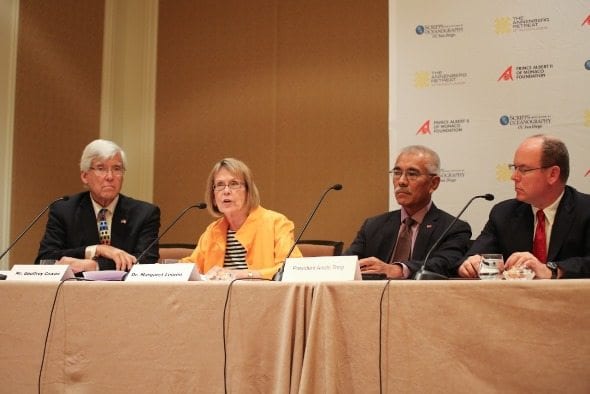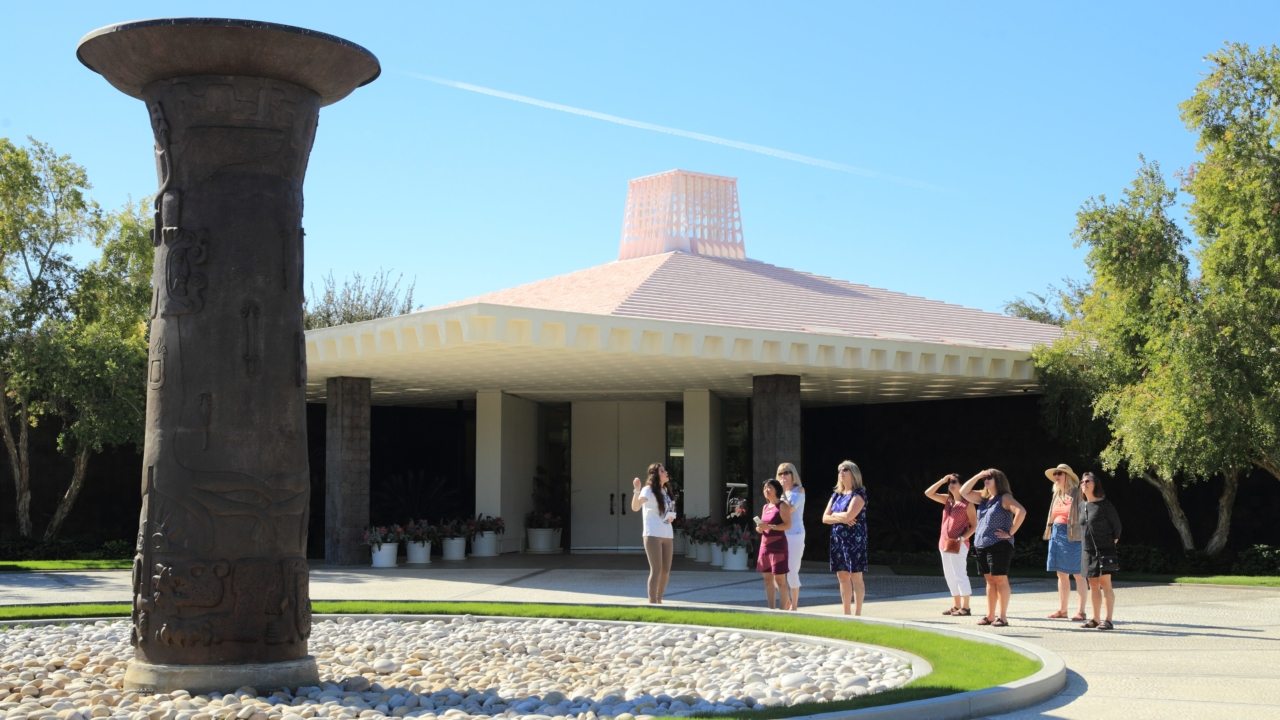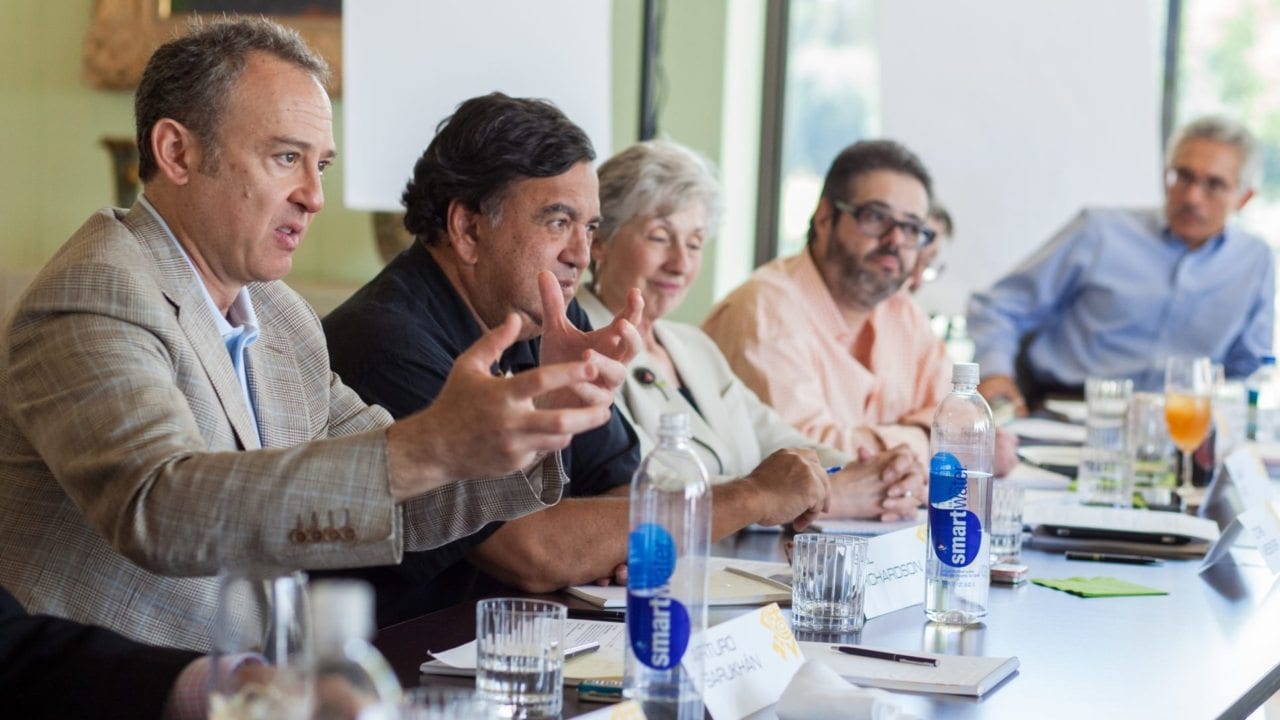Oceans retreat leaders call for international action to address migration crisis from climate change and sea level rise
At the conclusion of the retreat on Sea Change: Developing Strategies for Rising Sea Levels and Ocean Acidification, key participants issued public statements on how to advance and provide leadership for effective sea level rise adaptation strategies and address increasing levels of acidification that imperils the vitality of the oceans.
Participants included esteemed global leaders from government, science, media, and philanthropy. Geoffrey Cowan, then-president of The Annenberg Foundation Trust at Sunnylands, announced that participants found agreement on several points and pledged continued engagement on these issues.
“We at Sunnylands are committed to convening follow-up meetings designed to explore new efforts to create state-of-the-art tools, standardized training and certification for professionals, and communication strategies to improve public understanding of the need to act,” he said.
Also speaking were retreat co-conveners HSH Prince Albert II of Monaco, Dr. Margaret Leinen, director of the Scripps Institution of Oceanography at UC San Diego, and His Excellency Anote Tong, President of the Republic of Kiribati.
HSH Prince Albert called for action and a follow-up meeting to identify appropriate protocols for peoples who will be displaced by the rising oceans. This meeting has been scheduled to take place in Kirabati in approximately one year.
“The implications of climate change related to migration of large numbers of people, both within countries and across international borders, present the international community with new and daunting challenges,” he said.
Dr. Leinen, said retreat participants are committed to building the adaptive capacity of communities. She emphasized the need for new mechanisms for training professionals, accurate shared information, and tools for predicting threats and costs of the rising oceans.
President Tong said that the retreat was “exciting and inspiring and gave him a degree of hope” for the future of his country, which may before the end of the century cease to exist and whose population may need to be resettled as a result of the rising oceans. He concluded by saying, this “must be a collective effort” no country can do it alone.




